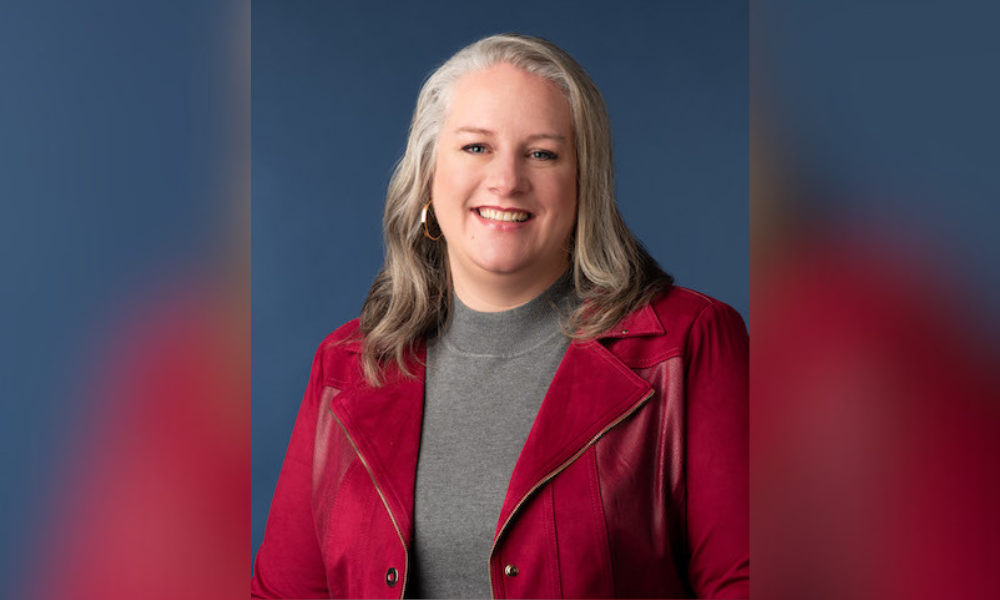"It's just another slap in the face of a federal public servant," says PIPSC president, Jennifer Carr.

The season of giving is fast approaching but some are feeling the aftereffects of taking. The Canadian government has rattled a local union that represents public service workers after announcing their decision to transfer money from the Public Service Pension Plan (PSPP) to its general revenue. The amount? $1.9 billion in surplus.
Jennifer Carr, president of the Professional Institute of the Public Service of Canada (PIPSC) highlights her union's concerns over transparency and fairness, describing the move as a disservice to workers who contribute equally to pension plans. She criticizes the lack of consultation with unions before reallocating the surplus, emphasizing that pension funds represent deferred salaries earned by workers.
“When workers contribute to a pension plan, it does kind of feel like a theft of those contributions when employers can just take those surpluses and decide what to do with it, without consultation with its members,” says Carr. “The reason that that they have made that money is because of the contributions of the workers.”
She also points to the imbalance in how pension deficits and surpluses are handled, noting the government could be discouraging strong market performance. “When we are in strong surplus positions, they’ll take the excess and put it into the federal coffers for general revenue,” asserts Carr. “When the pension funds aren’t doing well, they’ll use that as an impetus to do things like create two-tiered pensions for workers or increase employee contributions.”
She asserts the need for stability so that public service workers have strong, secure pensions, adding that surpluses should be kept in a trust or in some other way “where it shows that those are our contributions from workers to what we call deferred salaries.”
This isn’t the first time the federal government has absorbed pension surpluses into general revenue. Carr points to parallels, illustrating similar actions under former Prime Ministers Paul Martin and Stephen Harper. During Martin’s tenure, surplus funds were redirected to reduce debt. Harper’s administration then implemented measures such as increasing contribution rates and introducing a two-tier pension system, citing sustainability concerns.
Carr believes such actions ultimately erode worker trust and fail to address systemic issues. “It’s the hypocrisy of, while we’re doing well, the government takes all the benefits, but when we’re doing poorly, workers are asked to pull up their bootstraps and contribute more,” says Carr. “I'm not sure they're intentionally targeting this program because they want to. It's more of an opportunity for them to say, ‘Hey, we're in this surplus. We're not allowed to have it, so we're going to withdraw these funds.”
The government’s move has also left union members disillusioned, Carr adds, as many are frustrated by the perceived “disrespect” for their contributions. Members in the two-tier system, which was introduced to address perceived funding shortfalls, are particularly upset. “If the government created a two-tier program because it claimed the pension was not viable, and now we have this surplus, why wouldn’t we go the other way?” Carr says of members’ concerns.
While the government is indeed responsible to make up a deficit shortfall with taxpayer money, the program will be deemed to be not sustainable, Carr adds, causing the government to raise the contribution rates.
“They will change the pension perimeters, and that is, again, the frustration of those people who are on that second tier when they see there's a surplus knowing that they don't have the same pension benefits as their colleagues who have been working longer.”
That’s why Carr is urging the government to actively involve unions to determine how surplus funds are managed, advocating for a collaborative approach. “It is my hope that unions are at that table to help guide that conversation on where that money goes finding solutions that will help minimize the effects of such cost containment measures on workers and their futures,” she says, while also calling for the government to revisit and roll back its two-tier pension system.
“If they did that, it would change the calculations and prevent the program from being in such surplus,” suggests Carr.
Read more: Introduction to Pension Plan Calculators
Although the government has yet to announce specific plans for the surplus, she’s cautiously optimistic about future discussions, noting they’ve indicated to include key stakeholders in devising a solution.
For now, unions like PIPSC and the Public Service Alliance of Canada continue to press for active consultation. Carr warns that failing to engage workers would further damage trust and morale among public servants already grappling with systemic challenges, including ongoing, unresolved pay system issues and “a fiasco where benefits and transition rollovers were not respected.”
“It’s just another slap in the face of a federal public servant,” says Carr.



